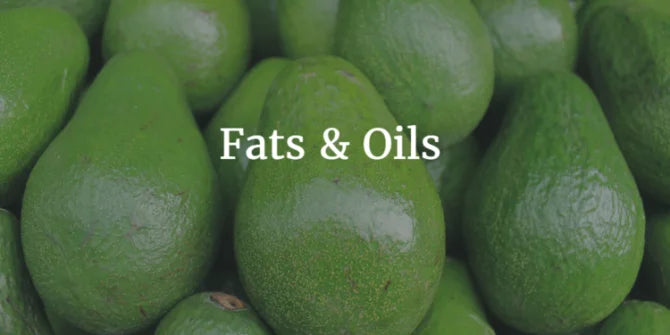The fats and oils you decide to add into your diet are critically important to the overall status of your health. Believe it or not, there are some fats that directly correspond to an increased risk of cancer and then there are some healthy fats that can decrease your chances and help your body fight cancer cells off. Let’s take a look at why thinking about the fat’s you include in your diet is worth thinking about.
Did you know that vegetable oil is associated with an increased risk of cancer? You may be wondering how something with the word vegetable in it could be associated with cancer, but vegetable oil is much different than the veggies you should regularly be consuming. Here’s are two reasons why vegetable oil may be increasing your risk of cancer.
Vegetable oils are often rancid due to heavy processing. When the vegetable oils are extracted from the plants, they undergo an excessive amount of heat, pressure, and more often than not, chemical solvents are used. The oil is then exposed to air and light which oxidizes the oils, making them rancid. By the time the oils get packed and find their way into your kitchen, they are toxic to the body and highly inflammatory.
Another reason to avoid vegetable oil is that researchers in Europe have linked vegetable oil consumption to breast, and colon cancer. Since many vegetable oils undergo hydrogenation, it turns these oils into tran-fat which increase the risk of cancer.
If you are ready to make healthier fat and oil choices in your diet, here are my top three tips to help you get started:
Tip #1: Eliminate Trans-fats
Trans-fats are damaged fats commonly found in things like fried foods, baked goods, frozen dinners, crackers, and margarine. A study was conducted with 25,000 European women participants that found that eating lots of trans-fats can increase breast cancer risk. Eliminate foods with trans-fats this week and focus on balancing your diet with healthier fat options.
Tip #2: Enjoy Healthy Fats
While not all fats are the same, healthy fats such as avocados, coconut oil, olive oil, chia seeds, flaxseeds, and walnuts are excellent fat sources. Some of the most nutrient dense foods are high in fat, so don’t be afraid to add some of these into your diet! Skip the processed fats and opt for these healthier options.
Tip #3: Cook with Coconut Oil
The type of oil you cook with is important to your overall health. Not all oils have the same smoke point, and some can withstand high heat while others oxidize very quickly in the pan exposing your body to toxic free radicals. Coconut oil tends to have a higher smoke point than most other oils and makes a fantastic cooking oil, and has a delightful flavour.
Are you ready to take a challenge and start removing toxic carcinogenic fats and oils from your diet and add healthier health promoting fats into your diet? Here is this weeks challenge to help boost your health just that much more.
I challenge you to reduce or eliminate at least one of the following processed fatty foods from your diet and replace it with one of the healthy fat options.
Reduce or Eliminate These Fats:
- Fried foods
- Trans-fats
- Hydrogenated fats
- Margarine
- Frozen dinners
- Canola, safflower, vegetable oil
- Microwave popcorn
- Donuts & other baked goods
Enjoy These Fats Instead:
- Coconut
- Olives or olive oil
- Walnuts
- Almonds
- Chia seeds
- Flax seeds
- Wild caught salmon
- Avocados

